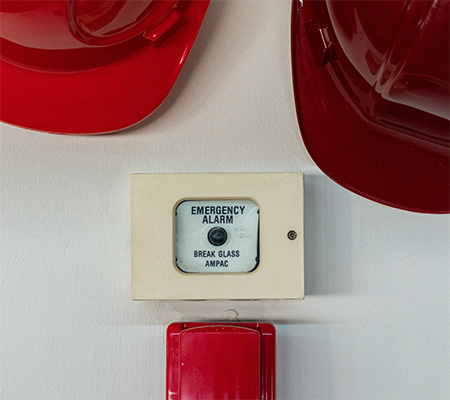Future-proofing your career has never been so important. The working world has changed and there is no going back. Change is the only constant. Here are 4 steps you can take right now to ensure your career can adapt to a constantly changing world.
Estimated Reading Time: 8 minutes
SUMMARY
- Change is a constant, there are no guarantees in life.
- Create a plan for now, with the flexibility to respond to future change.
- Take an inventory of your career assets.
- Get clear on your career bottom line.
- Take action: Plug the gaps.
- In emergency break glass: make a plan before you need it!
This week, the team at Churchill has returned to the Whitehouse (our office in leafy Samford Village) after 16 weeks of working from home.
We will be together for one week before moving into a hybrid working model – a balance of working from home and the office in combination.
There is no doubt that the working world has changed and once changed, there is no going back, just moving forward. Change is the only constant.
One phrase coming up consistently in our conversations with clients over the last 16 weeks is “Future proofing careers”.
Find out what you’re eligible for
In a time where clients in traditionally “safe” careers have found themselves at risk, it makes sense that so many of us would be starting to think about how to be future proof.
Here’s what we know about future proofing careers:
There are no guarantees in life.
Not even the most tightly worded contract will get us out of the one guarantee in life: there are no guarantees.
You still need a plan.
Not a bulletproof 99-point plan that you think out over many years. That is not a plan, it is paralysis.
You need a robust but “Start Here, Start Now” type of plan.
New York Times columnist Thomas Friedman (quoted here) calls this, “dynamic stability” – the ability to adapt to change constantly.
It’s called Controlling What You Can Control.
And it reminds you that whilst life can still come at you, you are not the sit in the corner and rock type.
You are the get in and fight on type.
Brave hearts and minds are always within your control.
“A good plan violently executed right now is far better than a perfect plan executed next week.”
George Patton
So, where do you start with future proofing your career?
4 Steps to Future Proofing Your Career: In Emergency Break Glass
Step 1: Take an inventory of your career assets

Photo by Glenn Carstens-Peters on Unsplash
Have you ever experienced an abrupt change to your financial situation?
We have.
The first thing we did was take inventory – what did we have in our bank accounts, stuffed into the coin jar, reward points on our credit card? We added it all up and worked out what we were worth.
The same thinking applies when you look at future proofing your career.
What do you have in terms of career assets?
- Your experience and your knowledge.
- Your technical skills and your soft skills.
- Your connections, memberships and referees.
- Your significant achievements – projects you completed, team members you mentored, awards you received, ideas you turned into reality.
- Your courses and accreditations. Your qualifications. Your tickets and licences.
- Your resume and LinkedIn profile.
- What other industries could your skillset slide into? What are your transferable skills?
- Your leave balances and employment contract.
- Money in the bank. Money due to you.
Write them all down, don’t just think about it or talk it about – by writing it down you begin to turn it into a concrete plan.
If a blank page scares you, start by doing this:
- Pop a single bullet point on the page – just like this.
- This signals to your brain that there is a list to make and it will start helping you.
- Every time you jot down one asset, put the next bullet underneath it ready for more assets.
- You get the idea.
It can help to pull out your position description or look over your diary from the last few weeks – what took up your time, what skills did you need to do this job?
Step 2: Calculate your career bottom line

Photo by ConvertKit on UnsplashOnce you know what you have got, you need to look at what you need.
On a personal front, ask yourself: what bills are coming? Then break them down into expenses that are non-negotiable and things that are a luxury you could do without for a while.
When we do this, we balance out what we’ve got coming in, with what we have going out. At some point in your life, you’ve probably done the same.
…Found yourself cancelling that gym membership and cutting down on the takeaways in favour of fuel in the car and the mortgage.
You can apply the same thinking to your career.
What is your career bottom line – what is non-negotiable for you in terms of career vs what are you prepared to give up?
What is the nice to have and how much are you prepared to do to keep it?
And remember, it is okay to change that list from what it has been to what you would prefer now.
Look around at your industry: what is in demand? What skills, knowledge and qualifications would you need to walk into another position that meets your bottom line?
Where do you come up short?
What do you have to sell in this market and how much is it worth?
What trends are coming in your profession and how could you be ready for them?
What work samples do you have at the ready? Position descriptions, reports, training records, your resume.
Just the same way you assess if you have enough dollars in the bank to tide you over if the worst came, check out your career bank: do you have enough to make you highly competitive if you found yourself heading into a job interview?
Keep your list out and keep writing: put it all down, without fear or favour.
Talk to people to get their insight on what opportunities and challenges are out there.
Stick with the smart folk, the ones you respect, and listen to what they have to say with curiosity.
When you stay curious, you stop yourself dismissing ideas out of hand. It gives you a chance to think some more and look to solutions.
The smart people in your life and in your industry may not be right about everything, none of us are, but chances are high they will have some wisdom that will help you.
Step 3: Take Action: Plug the Gaps

Photo by Suad Kamardeen on Unsplash
Now you have two lists – one that shows what you have and one that shows what you need.
Somewhere in the middle, you’ll realise there are some gaps.
If you are going to have a chance at future proofing your career, you need to be really honest with yourself about what you have and what you need – this will show up the gaps you need to plug.
This is where the real action happens.
Prioritise the gaps and come up with an action plan: remember, it is time to control what you can control.
Sure you could always brush up on your Excel skills, but maybe in your industry, jobs turn over quickly and it would be better to get your resume in tip top order and ready for launch.
So, get some help to make sure your resume and application will reach the top of the pile.
If you know that there are qualifications that are important for your career make contact with us. You may be eligible based on what you’ve already done.
If you have a licence that needs renewing, get it sorted.
Plug the gaps. Control what you can control.
Step 4: In Emergency, Break Glass

Photo by Mitchell Luo on Unsplash
Finally, take the time to write an “In Emergency, Break Glass” plan.
Too many people are left stunned and shell shocked by career change.
And in that shock, they miss opportunities.
The best time to write an emergency plan is BEFORE the emergency. That is why there are evacuation plans and practices that happen when there is not a whiff of smoke in the air. The middle of an emergency is not the time to stop and write a plan.
Now is the time to write the plan.
Imagine an email has pinged – there are whispers that the company is going to administration, your name is on a redundancy list.
What do you need to take out the door with you?
We are finding people are getting caught in missing out on qualifications because their job ended suddenly, and they walked out the door without evidence of their work to help them get qualified through Recognition of Prior Learning.
Yes, they have the runs on the board but the proof – well, that is behind locked cyber doors and no-one from HR is that keen to help them.
Don’t leave yourself in a position of having to rely on HR.
Instead have a plan that means you don’t have to think, just do. When others are putting their heads in their hands, you will be taking your life into your hands.
Your “In Case of Emergency, Break Glass” plan could include:
- Make a list of what you do on the job then use it to save examples of your work, reports you have written and projects you have completed. Those work samples are a powerful currency, particularly for Recognition of Prior Learning.
- Gather copies of your position descriptions and performance reviews, resume and training records.
- Set up your LinkedIn profile – and remember to get some recommendations on LinkedIn, today’s version of walking out with a typed reference. We have some tips our Alumni have used successfully to transform their LinkedIn Profile.
- Keep a central log of your passwords for memberships and online profiles.
- Save email addresses and phone numbers so you can reach people.
- Have your payslips sent to a personal email address, rather than a company email account.
- Figure out your finances – and for this, we always encourage people to start by reading The Barefoot Investor. This book will be the best $20 you have spent in a long time.
Find out what you’re eligible for
We’re Betting On You
Over the years, we have seen so many people reach a crossroads in their lives: jobs gone, health compromised, change in all of its most unwelcome mess.
Randall and I have reached crossroads in our lives: jobs gone, health compromised, change in all of its most unwelcome mess.
We learned to bet on the people who kept a clear head in the toughest of circumstances – who had the courage to write a plan, work the plan and adapt the plan – because those are the people who will make it through the tough days to better days.
That is how to future proof your career.
It may not stop change coming but it will give you the focus and direction to make it through to the other side.
And we’ll be here to help you along the way.
Stay safe,









